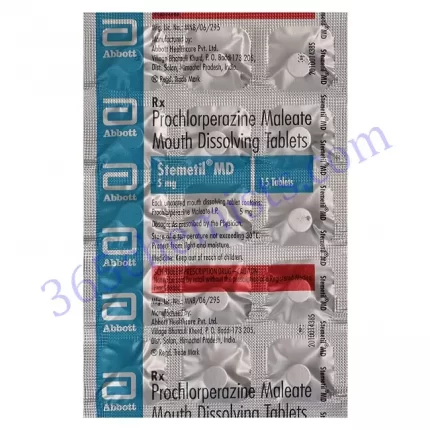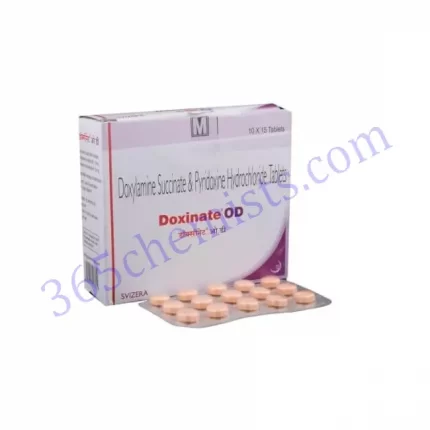Aprecap 125mg Capsule (Aprepitant): An In-Depth Overview
A product called Aprecap 125mg Capsule, which contains the drug aprepitant, is a member of the group of drugs known as neurokinin-1 (NK-1) receptor antagonists. It is primarily used to stop nausea and vomiting brought on by chemotherapy and some types of surgeries. This in-depth summary aims to give readers useful details about Aprecap 125mg Capsule, including its uses, dosage, warnings, and possible side effects.
Uses of Aprecap 125mg Capsule
Aprecap 125mg for Chemotherapy-Induced Nausea and Vomiting Especially with highly emetogenic (vomit-inducing) chemotherapy regimens, capsules are used to prevent nausea and vomiting brought on by chemotherapy. It functions by inhibiting substance P, a neurotransmitter associated with the vomiting reflex, which lessens the frequency and severity of chemotherapy-related nausea and vomiting.
Postoperative Nausea and Vomiting: Aprecap 125mg Capsule is also employed to stop nausea and vomiting following a number of surgical procedures. It assists in controlling postoperative nausea and vomiting, which can be upsetting for patients and may hinder the healing process.
Dosage and Administration
The Aprecap 125mg Capsule is taken orally, with or without food, typically an hour prior to chemotherapy or surgery. Depending on the specific chemotherapy regimen, surgical procedure, and personal patient factors, the dosage and length of treatment may change. It’s crucial to adhere to your healthcare provider’s or a product’s label’s instructions. Without consulting a doctor, never take more medication than is advised or change the way it is to be administered.
Related Product
Aprecap 125 mg
Aprecap 125/80 Capsule
Aprecap 150mg Injection
Precautions and Considerations
The following safety measures should be taken into account before using Aprecap 125mg Capsule:
Drug Interactions: Some antiarrhythmics, anticonvulsants, and antidepressants, as well as Aprecap 125mg Capsule, may interact with one another. To prevent potential interactions, let your healthcare provider know about every medication you are currently taking. Your healthcare provider can weigh the advantages and disadvantages and modify the treatment plan as necessary.
Liver Function: 125mg Aprecap The liver is the primary site of capsule metabolism. Tell your healthcare provider if you have liver issues or a history of liver disease. During treatment, they might need to modify the dosage or keep an eye on your liver’s health.
Breastfeeding: Aprecap 125mg Capsule’s safety during pregnancy and breastfeeding has not been determined. Before using this medication, go over the potential risks and benefits with your doctor if you are pregnant, trying to get pregnant, or nursing a baby.
Allergic Reactions: It’s important to avoid using Aprecap 125mg Capsule if you have a known allergy to aprepitant or any of its other ingredients. From minor skin irritation to more serious reactions, allergic reactions can range. Use should be stopped right away if you exhibit any symptoms of an allergic reaction, including rash, itching, swelling, or trouble breathing.
Potential Side Effects
Although Aprecap 125mg Capsule is typically well tolerated, some side effects are possible. Fatigue, hiccups, constipation, diarrhoea, and taste changes are examples of frequent side effects. Usually transient, these side effects disappear on their own. It is important to let your doctor know if any side effects linger or start to bother you.
Liver issues, allergic reactions, and alterations in heart rhythm are less frequent but potentially serious side effects. If you experience any severe or lingering side effects, it’s important to see a doctor.
Conclusion
A crucial drug called Aprecap 125mg Capsule (Aprepitant) is used to stop nausea and vomiting brought on by chemotherapy as well as postoperative nausea and vomiting. It assists in reducing these distressing symptoms and enhances the quality of life for patients undergoing chemotherapy or surgery by preventing the action of substance P. For safe and efficient use of Aprecap 125mg Capsule, it’s crucial to stick to the recommended dosage, take the necessary precautions, and pay attention to your reaction. Consult your healthcare provider for specific direction and advice if you have any worries or questions about using Aprecap 125mg Capsule. Throughout the course of your treatment, maintaining regular contact and following up with your doctor will help to ensure the best possible outcomes for controlling nausea and vomiting.
Additional Information
Consider the following additional factors before using Aprecap 125mg Capsule:
Adherence to Treatment Schedule: It’s crucial to take Aprecap 125mg Capsule one hour prior to chemotherapy or surgery, as directed by your doctor. Following the suggested schedule enhances how well the medication works to stop nausea and vomiting.
Combination therapy: To effectively control nausea and vomiting, aprecap 125mg capsule is frequently taken in conjunction with other antiemetic drugs like corticosteroids and 5-HT3 receptor antagonists. Pay attention to your doctor’s instructions regarding the particular combination therapy regimen.
Lifestyle Changes: In addition to medication, some lifestyle changes can help control nausea and vomiting. Small, frequent meals, staying hydrated, avoiding smells and other triggers, and practising relaxation techniques are a few examples. Talk about these techniques with your healthcare provider to get recommendations that are unique to you.
Storage and Handling: Keep Aprecap 125mg Capsules at room temperature and out of the reach of children and pets. Keep it out of children’s reach. Any unneeded or expired medication should be disposed of properly in accordance with local laws.
Using a vehicle and operating equipment: apecap 125mg Some people may experience drowsiness or vertigo after taking a capsule. Avoid driving or operating machinery if you experience these side effects until you know how the medication affects you.
Regular Follow-up: Keep in touch with your doctor on a regular basis, and go to your follow-up appointments to discuss any side effects or concerns as well as gauge how well the treatment is working. If more support is required, your healthcare provider may change the dosage.
Keep in mind that the information presented here should only be used as a general reference and not as a substitute for specific medical advice. Always speak with your healthcare provider to get specific advice based on your unique needs and situation.











